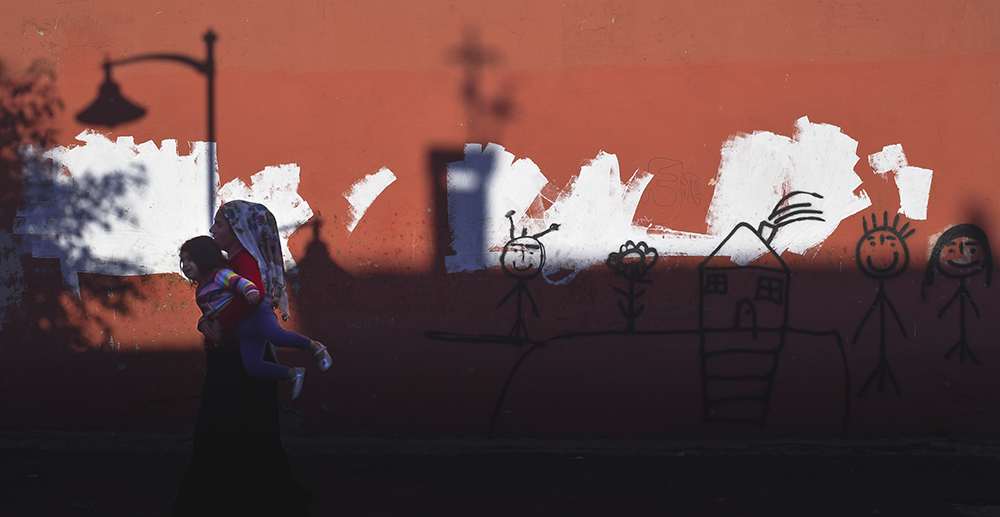 A Syrian mother carrying her daughter back to a safe place in Istanbul, Turkey
A Syrian mother carrying her daughter back to a safe place in Istanbul, Turkey
The law can be constricting with asylum seekers and immigrants, but there are organisations that offer support, appropriate assistance and knowledge. The Social work law module includes interviews with practitioners and organisations working with migrants, refugees and people with insecure immigration status.
Women face particular issues and their difficulties are often overlooked. They experience gender-based violence in addition to other difficulties and can find themselves without access to support or protection. Immigration rules are often complex to negotiate, and those fleeing rape, forced marriage or torture are often disbelieved by immigration authorities and left destitute.
Organisations like Southall Black Sisters (SBS) and Women for Refugee Women (WRW) campaign for changes and offer independent support for women and children. As the interview below with Mina Patel from SBS illustrates, whether a woman is experiencing violence prior to seeking asylum in the UK, or within an intimate relationship already in the UK, there are laws that offer protection, so it is important to get legal advice and support.
The report Refused, compiled by WRW, explains how women are often disbelieved by immigration officers and have their claims dismissed, with nearly all of the 70 interviewed women refused asylum. Of those refused asylum, more than half had been made destitute, with no support or housing, a quarter detained, and more than half had contemplated suicide. The campaign Sisters Not Strangers highlights how women come to the UK every year to seek asylum, but are locked up in detention instead. WRW run campaigns, networks and classes for women on the basis that:
every woman deserves her liberty and a chance to rebuild her life
Having experienced violence from partners or family, they are often isolated and disbelieved. In the interview below, Meena Patel describes the work of SBS; set up in 1979 during an anti-racist movement, after two South-Asian women died in Southall, West London from their partners abusing them. SBS felt it was important to break the silence about gender-based violence within communities and set up a service for black and ethnic minority women. Designed to ensure they were getting the same advice, support and safety, SBS offers counselling and advocacy as well as campaigning for changes to the law. They with others have been successful in changing aspects of immigration law, introducing law on forced marriage in the UK to protect young girls and boys, and the creation of spousal visas for women experiencing domestic violence with insecure immigration status. They’re also a secular centre where women can go to receive emotional and practical peer support and belong to an alternative community which does not judge.
Meena discusses the challenges women face in the immigration system, talking about campaigning and working nationally with black and ethnic minority women. She focuses on the role of social workers and considers the needs of women experiencing immigration, asylum and NRPF (No Recourse to Public Funds) problems with other forms of violence, including sexual violence, forced marriage, female genital mutilation and so-called ‘honour’ based violence.
She explains how social workers can prevent destitution when leaving an abusive relationship, and they should house women and children together – rather than simply place children into care.
Although there are common themes to learn, every person’s experience is unique, therefore it is important to treat them individually, each with personal stories to tell, with their own sense of agency. Being treated with dignity, recognising their resilience in adapting to new circumstances, and ultimately being offered support will make a huge difference to their lives, especially at a time when they may be feeling alone.
EXPLORE FURTHER: To visit an online exhibition by Women for Refugee Women, featuring photography documenting five asylum-seeking women in London, click here.

Rate and Review
Rate this article
Review this article
Log into OpenLearn to leave reviews and join in the conversation.
Article reviews